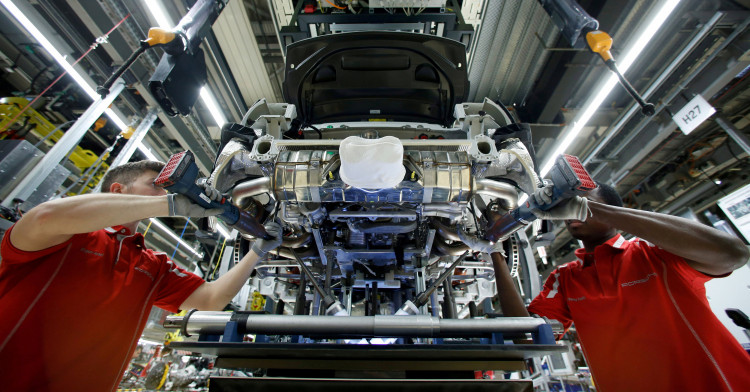Germany's economy has started worrying financial experts as the latest data revealed that the manufacturing sect saw a 1.6 percent dip in orders in December.
The Guardian reported that German factories attributed the drop to weak product demand from other countries. Concerns over the economy's development have started emerging since news of the struggle in manufacturing sects came out on Wednesday.
The information released by Statistisches Bundesamt (Destatis) indicated that demand dropped by 7 percent on a year-on-year basis. This figure is so far the biggest dip in Germany's economy since 2012.
Aside from manufacturing sects, the car industry in Germany has also been struggling for the past months. Tests for new models have been delayed following the establishment of new pollution rules that car manufacturers have had a hard time adjusting to.
Furthermore, Germany experienced another fall after the European Union (EU) stopped Siemens from sealing a merger deal with French rail transport giant Alstom. Antitrust commissioner Margrethe Vestager pulled the trigger on the supposed merger, with the reason that Alstom and Siemens' joint venture could drive up prices and monopolize the European train market.
Deutsche economists said about the drop in orders and current issues that Germany is faced with, "The start of the German economy into 2019 has been a major disappointment so far. The development of several key cyclical indicators is telling us that the German economy is drifting towards recession right now."
Some economy experts noted that if demand doesn't increase soon, Germany could experience a technical recession. This prediction came in the midst of an overall decline in the eurozone.
Amid the doubts and fears for Germany's future, Economy Minister Peter Altmaier introduced an industrial plan that he said could help boost the country's technological competitiveness.
Dubbed the "National Industry Strategy 2030," Altmaier's proposal recommends that the German government support innovation through reducing business costs and providing key technological innovations to Germany, the Deutsche Welle reported.
Altmaier stressed the need to improve innovative programs in Germany so as to avoid potential takeovers from some of the world's most progressive technological markets, including China and the United States.
Some critics did not receive Altmaier's proposal on a positive note, with other analysts stating that the industrial strategy is not at par with Germany's free market economy. Still, Altmaier stressed that "investments must come from the private economy."
Following his attempt to defend his strategy, Altmaier is set to discuss his proposal with political representatives and business chiefs.





